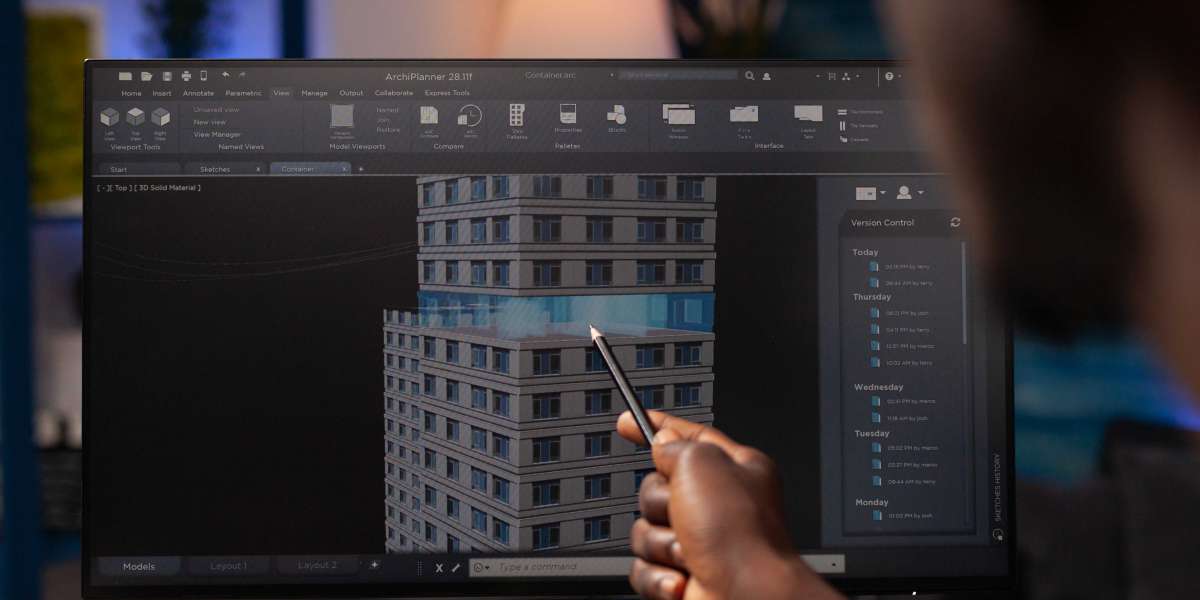Revit MEP (Mechanical, Electrical, and Plumbing) is a powerful Building Information Modeling (BIM) software developed by Autodesk. It is specifically designed to support professionals in the fields of mechanical, electrical, and plumbing engineering, providing a comprehensive platform for designing, documenting, and analyzing building systems. Revit MEP is an integral part of the Autodesk Revit software suite, which also includes tools for architectural design and structural engineering.
For individuals looking to enhance their skills in Revit MEP, there are various training courses available. A Revit MEP course typically covers fundamental concepts, advanced modeling techniques, system analysis, and project collaboration. Participants gain hands-on experience in using the software to create efficient and accurate MEP designs.
Job Roles Related to Revit Mep
Several job roles in the architecture, engineering, and construction (AEC) industry are closely associated with Revit MEP, reflecting the software's specialization in mechanical, electrical, and plumbing systems.
Here are some key job roles related to Revit MEP
- Mechanical Engineer (Revit MEP)
- Electrical Engineer (Revit MEP)
- Plumbing Engineer (Revit MEP)
- BIM Coordinator
- BIM Manager
- Revit MEP Specialist
- Building Systems Analyst
- Construction Documenter (Revit MEP)
- Facilities Manager
1) Mechanical Engineer (Revit MEP)
- Responsibilities include designing HVAC (Heating, Ventilation, and Air Conditioning) systems.
- Collaborates with architects and other engineers to integrate mechanical systems into building designs.
- Uses Revit MEP to model, analyze, and document mechanical components.
2) Electrical Engineer (Revit MEP)
- Focuses on designing electrical systems, including lighting, power distribution, and communication systems.
- Collaborates with architects and other disciplines to ensure seamless integration of electrical components.
- Utilizes Revit MEP for 3D modeling, analysis, and documentation of electrical systems.
3) Plumbing Engineer (Revit MEP)
- Specializes in the design of plumbing and fire protection systems.
- Collaborates with architects and other engineers to integrate plumbing systems into building designs.
- Uses Revit MEP for modeling, analysis, and documentation of plumbing systems.
4) BIM Coordinator
- Manages and coordinates the implementation of BIM processes within a project.
- Ensures collaboration and communication among different disciplines using Revit MEP.
- Resolves clashes and conflicts in the BIM model to maintain project consistency.
5) BIM Manager
- Oversees the overall implementation of BIM on projects.
- Develops and enforces BIM standards and workflows.
- Manages the BIM team, including Revit MEP users, and ensures project deliverables meet quality standards.
6) Revit MEP Specialist
- Specializes in the use and optimization of Revit MEP software.
- Provides training and support to other team members on effective Revit MEP workflows.
- Stays updated on the latest features and best practices related to Revit MEP.
7) Building Systems Analyst
- Conducts analysis on mechanical, electrical, and plumbing systems within Revit MEP.
- Works to optimize the performance and efficiency of building systems.
- Collaborates with engineers and architects to implement sustainable and energy-efficient design solutions.
8) Construction Documenter (Revit MEP)
- Creates detailed construction documents using Revit MEP models.
- Ensures that drawings and documentation align with project requirements and standards.
- Collaborates with other disciplines to produce coordinated construction documents.
9) Facilities Manager
- Utilizes Revit MEP data for facility management purposes.
- Manages and maintains building systems data for ongoing operations.
- Collaborates with design teams to ensure accurate representation of building systems in the model.
Conclusion
In conclusion, the field of Mechanical, Electrical, and Plumbing (MEP) engineering has seen a transformative shift with the advent of Revit MEP. This powerful Building Information Modeling (BIM) software by Autodesk has become an indispensable tool for professionals in various job roles within the architecture, engineering, and construction (AEC) industry. The comprehensive features of Revit MEP, including parametric modeling, interdisciplinary coordination, and energy analysis, empower engineers to design, analyze, and document complex building systems with efficiency and precision.




